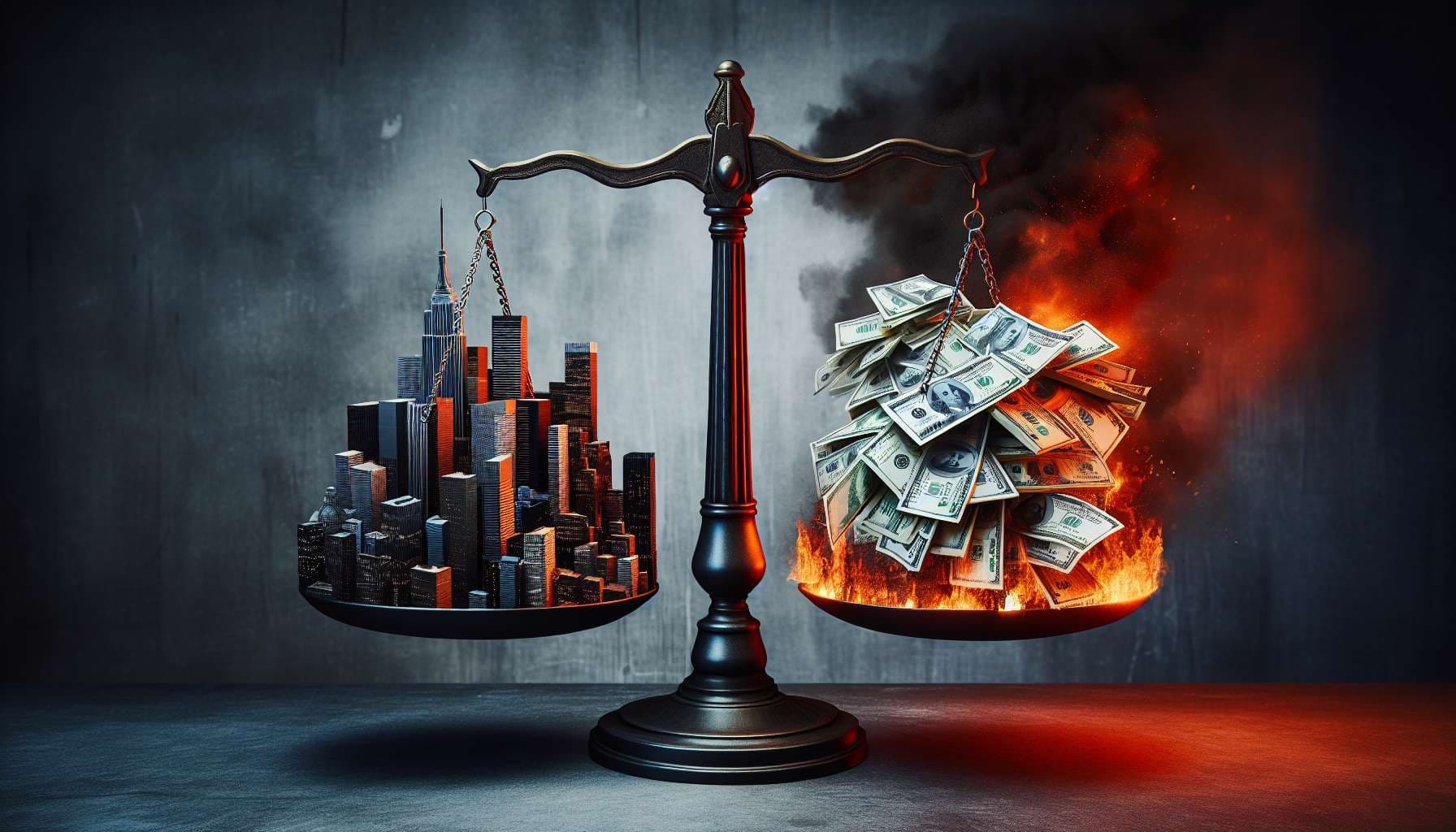
On Feb. 16, Donald Trump was ordered to pay more than $450 million (including interest) by way of a judgment in his civil fraud trial in New York. Resolves Yes if the judgment is affirmed on appeal. Resolves No in all other cases (including one where the judgment is reversed and remanded for a new trial).
https://www.nytimes.com/2024/02/17/nyregion/trump-civil-cases-millions.html
Ny Appeals court vacated the entire monetary penalty—originally $354 million, which had accrued to over $500 million with interest—deeming it an unconstitutionally excessive fine under the Eighth Amendment, particularly since no direct victims suffered financial losses. Both sides will appeal to NY Supreme court. Even if appealed, the constitutional ruling is strong, and the penalty's excessiveness. Reinstatement of penalty would require overturning this federal constitutional finding. Not overturning means penalty stays at zero. to avoid the excessiveness, it would have to be way below $100 million. 80% zero, 10% less than a million, 10% at 1-50 million.
NY Supreme court could overturn the fraud finding. Zero penalty and no fraud. 25%. Two out of five on appeal said there was no fraud. Automatic appeal to Supreme Court of New York on that basis
Seems like there won't be an appeal:
@Schwabilismus That's not what the article means. Trump has failed to obtain an appeal bond, which means that (unless the 5-judge panel mentioned says otherwise), the AG can seek to enforce the judgment (start collecting) while his appeal is still pending. That's a different issue from whether there is an appeal -- nothing here indicates he won't appeal in either case, and the fact that he's seeking and appeal bond indicates that he IS.
That would resolve NO -- that would not be affirming the judgment in full. (For the sake of avoiding confusion, however, note that the judgment here is something like $350M + $100M in interest). I think the only mechanism by which the amount of the judgment could be changed would be for the appeals court to reverse/vacate the decision in part and remand the case for a new proceeding or new determination of damages by the trial court, so I don't think there will be ambiguous cases in practice.
Also for clarity: If the judgment is affirmed in part and reversed in part, the question would resolve NO, provided that the reversal reopens the question of damages (which I think it would in almost all cases).
@CateHall That's not very fun. So if appeal reduces the damages by 1 dollar, but doesn't undo any other aspect of the judgment, it's considered NO? There should be a bet on whether it gets reversed at all.
@Snarflak Correct. In practice, though, that would never happen. I think the only way the appeals court could change the amount of damages without vacating and remanding for a new determination by the trial court would be for it to do something like rule as a matter of law that some category of damages (e.g. punitive damages) aren't available, which would mean a very large change to the amount of the judgment.
They could convict trump for killing Nicole Simpson and it would stand in NY. But if Trump gets elected, he won’t pay a dime.
@Snarflak Trump gets elected, refuses to pay, orders trump tower to remain open. What’s anyone going to do to stop him?
@FoxKHTML I don't understand what you mean. If Trump is elected President of the US, how could he "order" Trump Tower to "stay open"? You mean he could prevent NYS from seizing Trump Tower somehow as President?